Netflix’s ‘Queen Cleopatra’ Director Condescendingly Dismisses Criticism Against Series’ Race-Swapping Of Actual History: “We Don’t Realize That Misogynoir Still Has An Effect On Us Today”
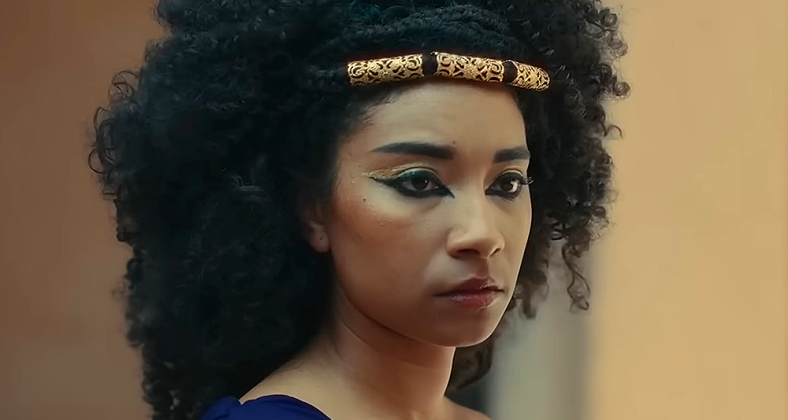
In what may go down as one of the most condescending and tone-deaf responses to criticism of all time (not that she cares for history away), the director of Netflix’s upcoming Queen Cleopatra has defended the series’ race-swapping by claiming that it portrays the Egyptian ruler “even more right” than ever before.
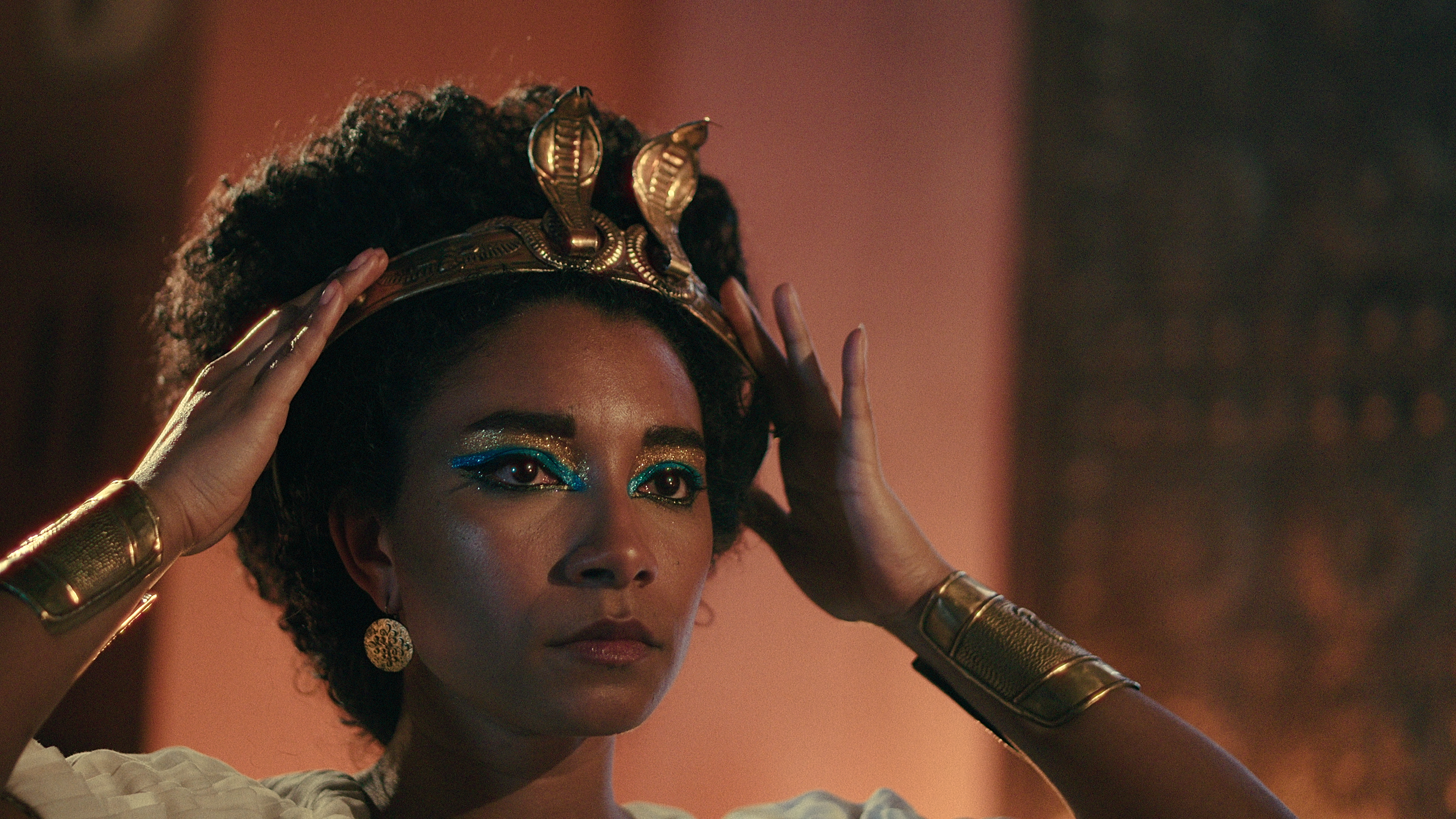
Heavy is the head that wears Cleopatra’s (Adele James) crown in Queen Cleopatra (2023), Netflix
A documentarian whose previous works covered such topics as a young woman’s exile from Iran and her subsequent life as a refugee in Britain (I Am Nasrine) and the ever growing divisions seen across the world (Tribalism is Killing Us) – which she attributes in large part to the ‘loss of white privilege’ – director Tina Gharavi offered her response to the bevy of criticisms against Queen Cleopatra via an exclusive op-ed published by Variety on April 21st.
“I remember as a kid seeing Elizabeth Taylor play Cleopatra. I was captivated, but even then, I felt the image was not right,” Gharavi first explains of her decision to take such a creative liberty with actual history. “Was her skin really that white? With this new production, could I find the answers about Cleopatra’s heritage and release her from the stranglehold that Hollywood had placed on her image?”
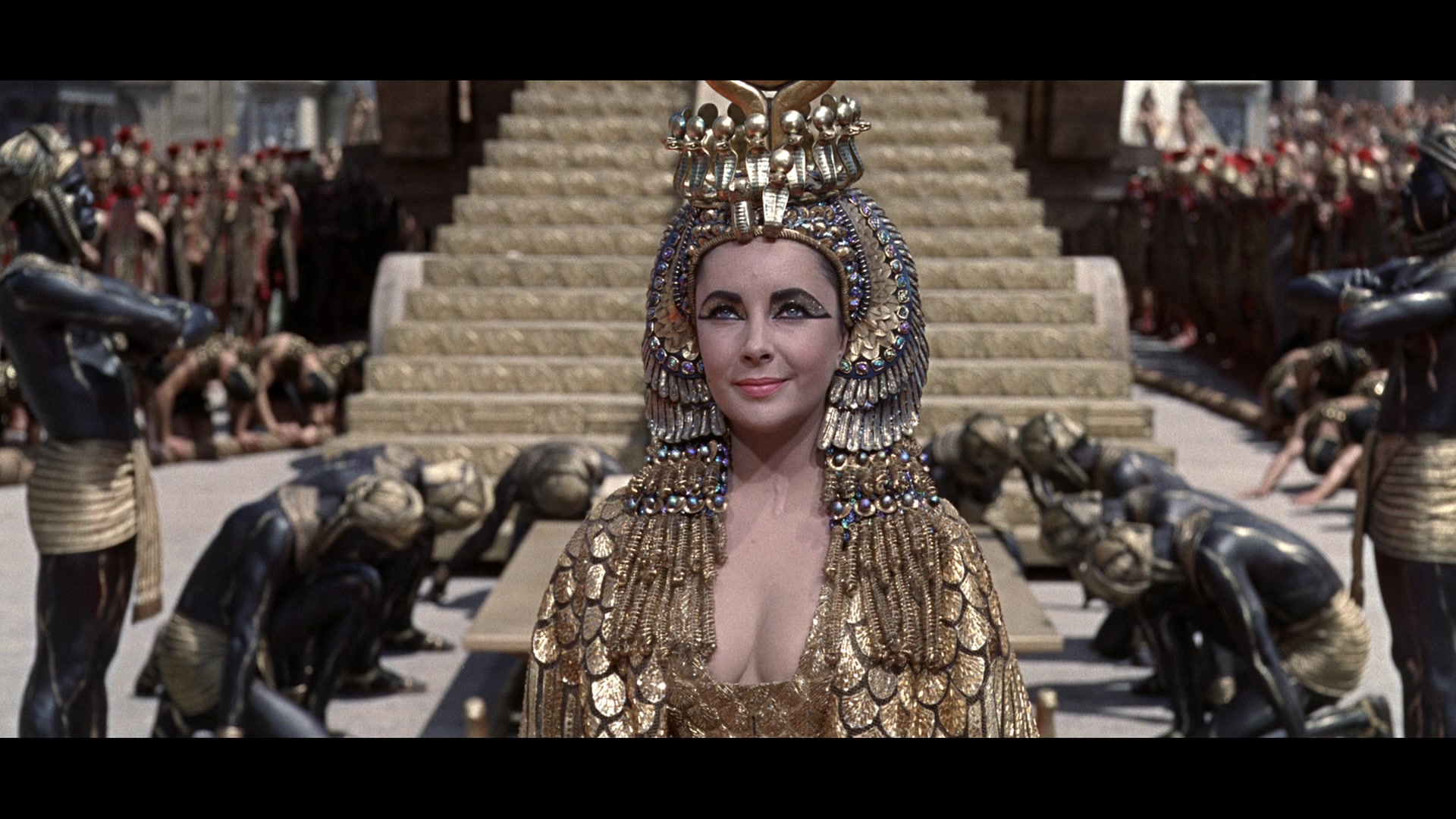
Cleopatra (Elizabeth Taylor) takes the throne in Cleopatra (1963), 20th Century Fox
Gharavi then moved to discuss Cleopatra’s heritage, correctly noting that in regards to the historical figure, “The known facts are that her Macedonian Greek family — the Ptolemaic lineage — intermarried with West Asian’s Seleucid dynasty and had been in Egypt for 300 years.”
However, ostensibly due to the fact that even scholarly research did not support the idea that ‘Cleopatra was black’, the director then attempted to deliberately muddy the conversation by moving the goalposts and conflating discussions on the Queen’s race with those regarding her nationality.
“Cleopatra was eight generations away from these Ptolemaic ancestors, making the chance of her being white somewhat unlikely,” she asserted. “After 300 years, surely, we can safely say Cleopatra was Egyptian. She was no more Greek or Macedonian than Rita Wilson or Jennifer Aniston. Both are one generation from Greece.”
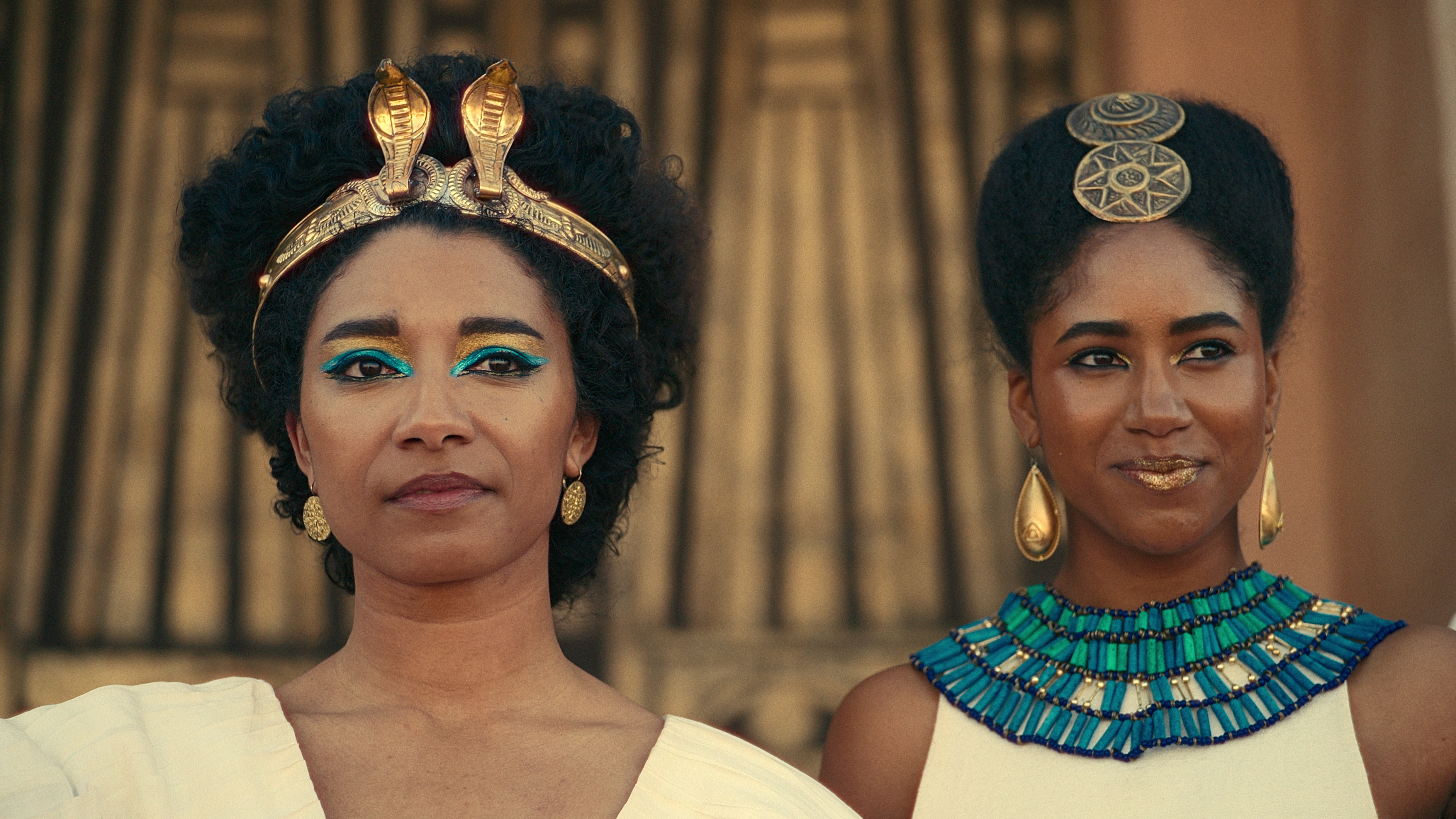
Cleopatra (Adele James) rules over the Ptolemaic Kingdom in Queen Cleopatra (2023), Netflix
Finding that reality stood in the way of the narrative she believed, the filmmaker then admitted that she still chose to move forward with portraying Cleopatra as a black due to the fact that while “Doing the research, [she] realized what a political act it would be to see Cleopatra portrayed by a Black actress.”
” For me, the idea that people had gotten it so incredibly wrong before — historically, from Theda Bara to Monica Bellucci, and recently, with Angelina Jolie and Gal Gadot in the running to play her — meant we had to get it even more right,” wrote Gharavi. “The hunt was on to find the right performer to bring Cleopatra into the 21st century.”
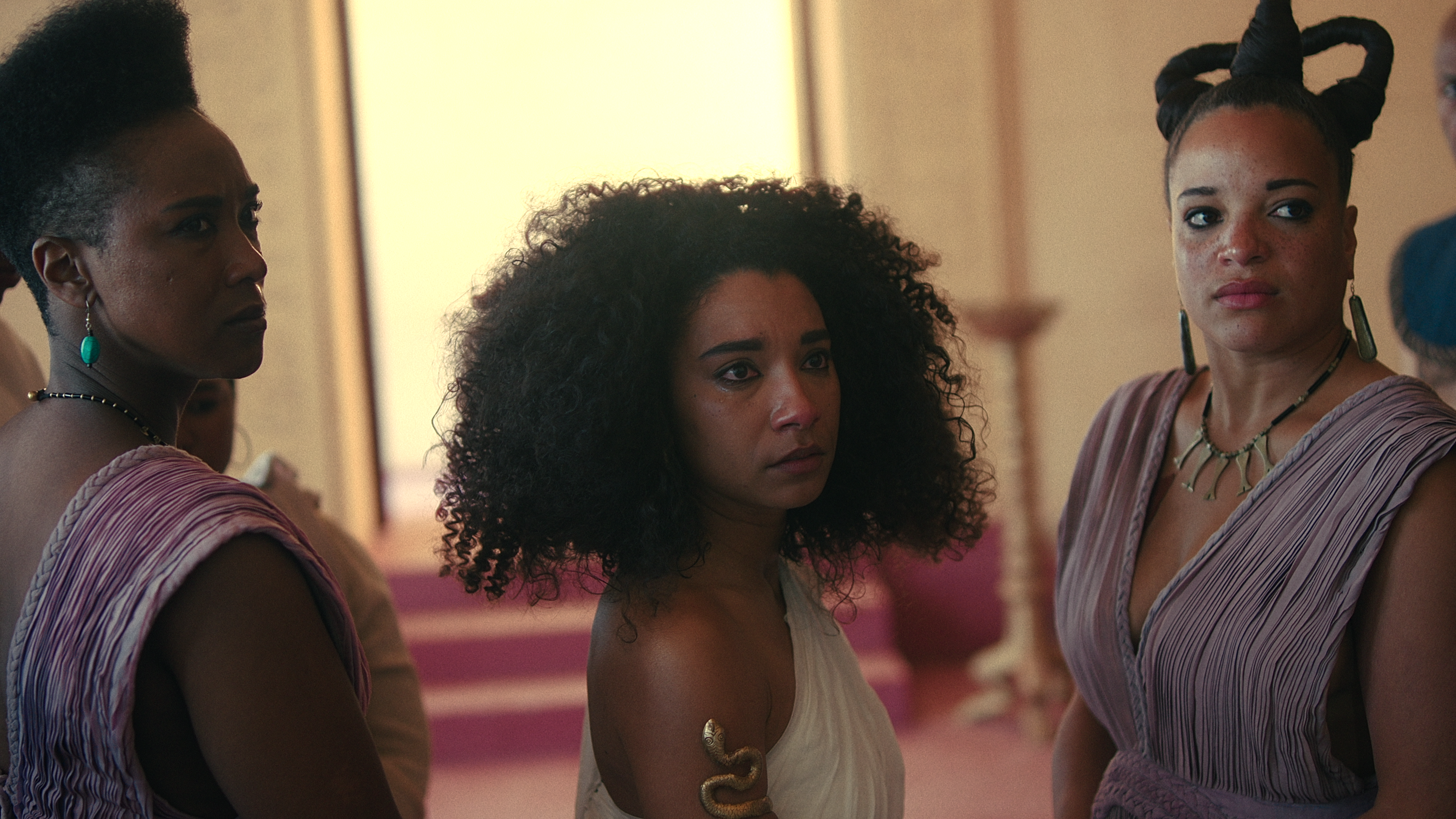
Cleopatra (Adele James) attended to by her hand maidens in Queen Cleopatra (2023), Netflix
“Why shouldn’t Cleopatra be a melanated sister?” she asked, almost deliberately ignoring how the outrage against her docuseries is based on its falsification of real history rather than any racial hatred. “And why do some people need Cleopatra to be white? Her proximity to whiteness seems to give her value, and for some Egyptians it seems to really matter.”
“After much hang-wringing and countless auditions, we found in Adele James an actor who could convey not only Cleopatra’s beauty, but also her strength,” Gharavi further recalled, before baselessly putting forth the claim that, “What the historians can confirm is that it is more likely that Cleopatra looked like Adele than Elizabeth Taylor ever did.”
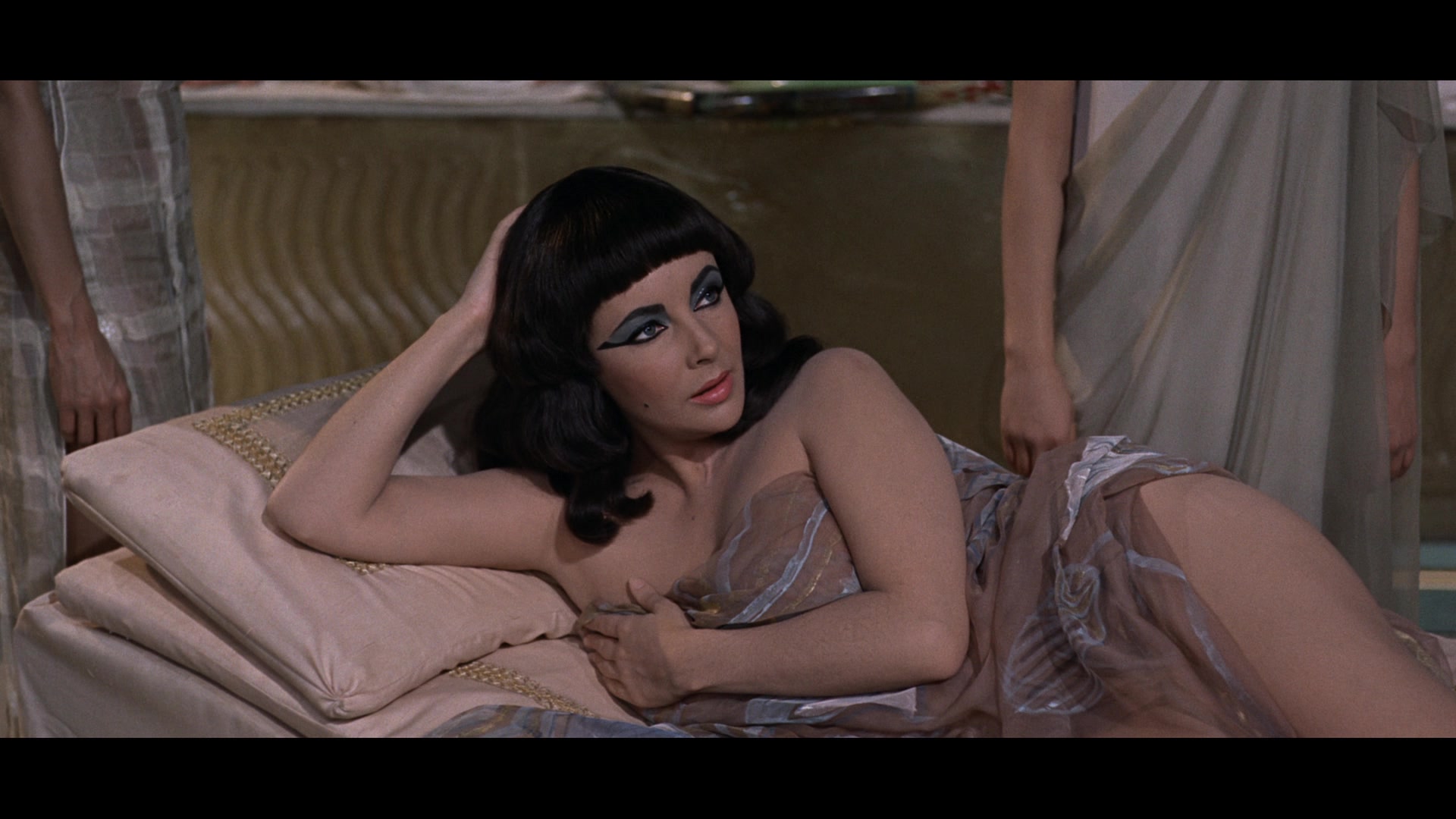
Cleopatra (Elizabeth Taylor) awakens from a nap in Cleopatra (1963), 20th Century Studios
(Unfortunately for Gharavi, in this regard, her Afro-centric beliefs regarding Cleopatra’s history have once again failed to line-up with actual history.
According to a posthumous portrait of the Queen found in the ruins of the ancient Roman city Herculaneum, which many historians agree is one of the only surviving depictions of the Queen, depicts Cleopatra with fair skin and red hair – an appearance actually more in line with Taylor’s than James’.)
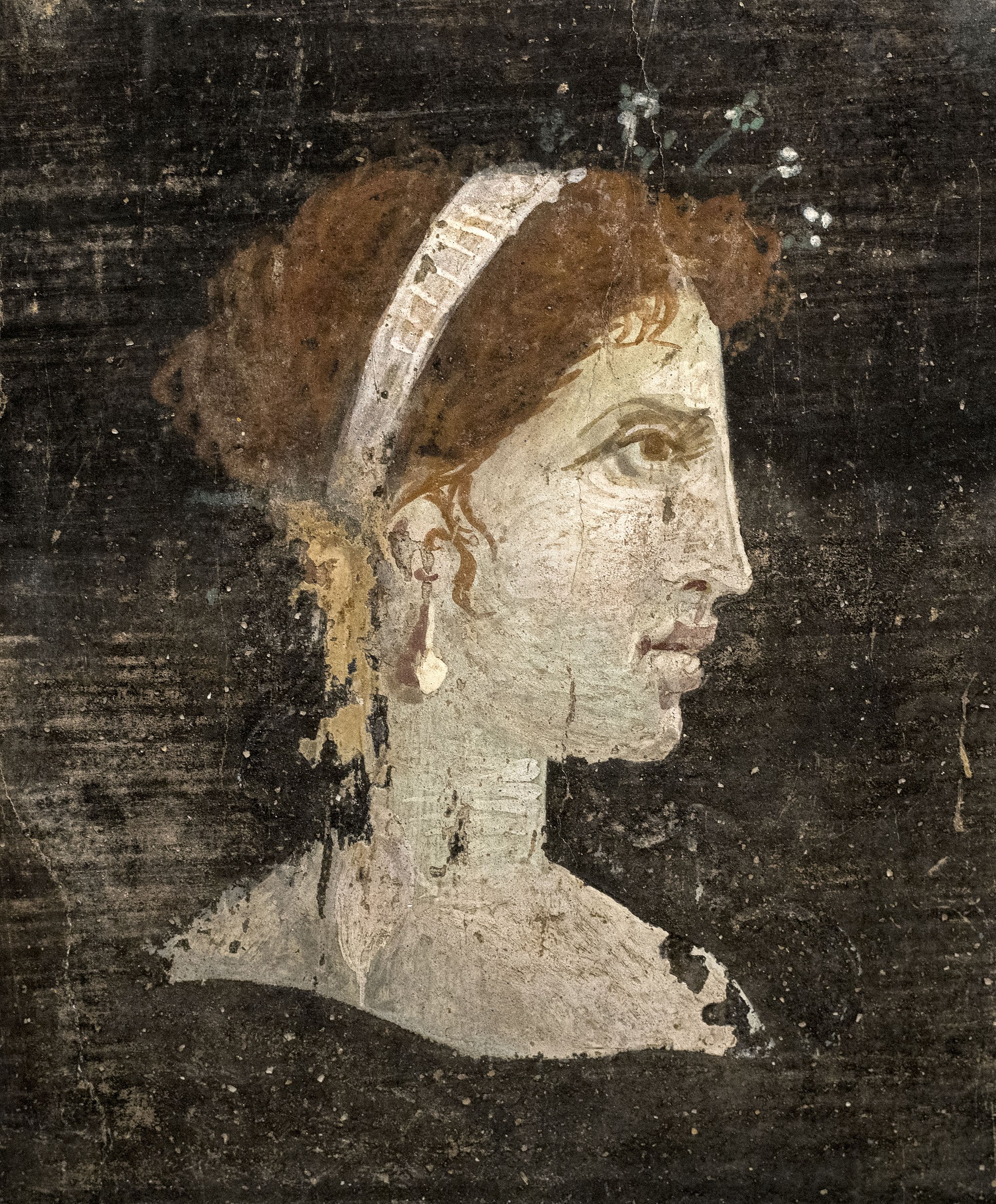
A posthumous painted portrait of Cleopatra VII of Ptolemaic Egypt from Roman Herculaneum, made during the 1st century AD, i.e. before the destruction of Herculaneum by the volcanic eruption of Mount Vesuvius by Á. M. Felicísimo via Creative Commons 2.0 License
Further defending her upcoming work, Gharavi next turned to another past portrayal of the Egyptian ruler, taking issue with how “The HBO series Rome portrayed one of the most intelligent, sophisticated and powerful women in the world as a sleazy, dissipated drug addict, yet Egypt didn’t seem to mind.”
“Where was the outrage then?” she questioned. “But portraying her as Black? Well.”
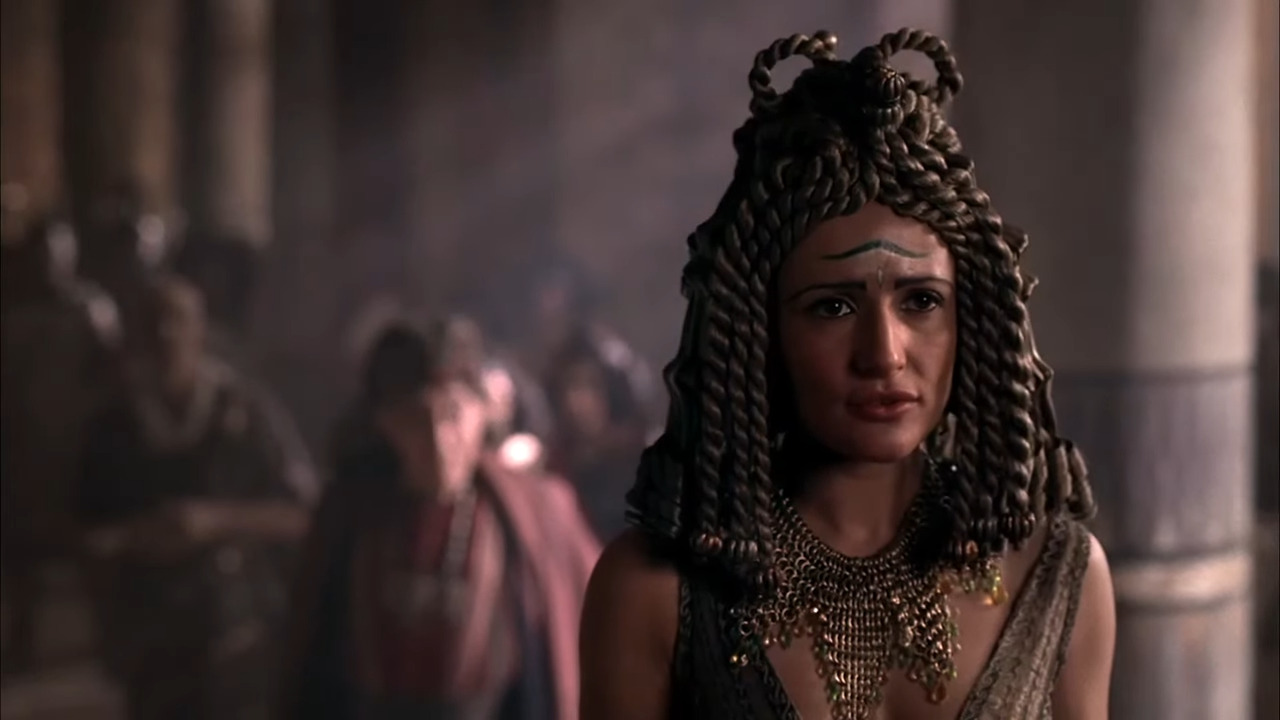
Cleopatra (Lyndsey Marshal) reclaims her throne in Rome Season 1 Episode 8 “Caesarion” (2005), HBO
Still unwilling to admit that perhaps the reason for this outrage was her own genuine misstep rather than the unfair bleating of so-caslled racists, Gharavi asserted, “Perhaps, it’s not just that I’ve directed a series that portrays Cleopatra as Black, but that I have asked Egyptians to see themselves as Africans, and they are furious at me for that.”
“I am okay with this,” she then affirmed, despite the fact that she felt the need to write an entire op-ed refuting her critics.
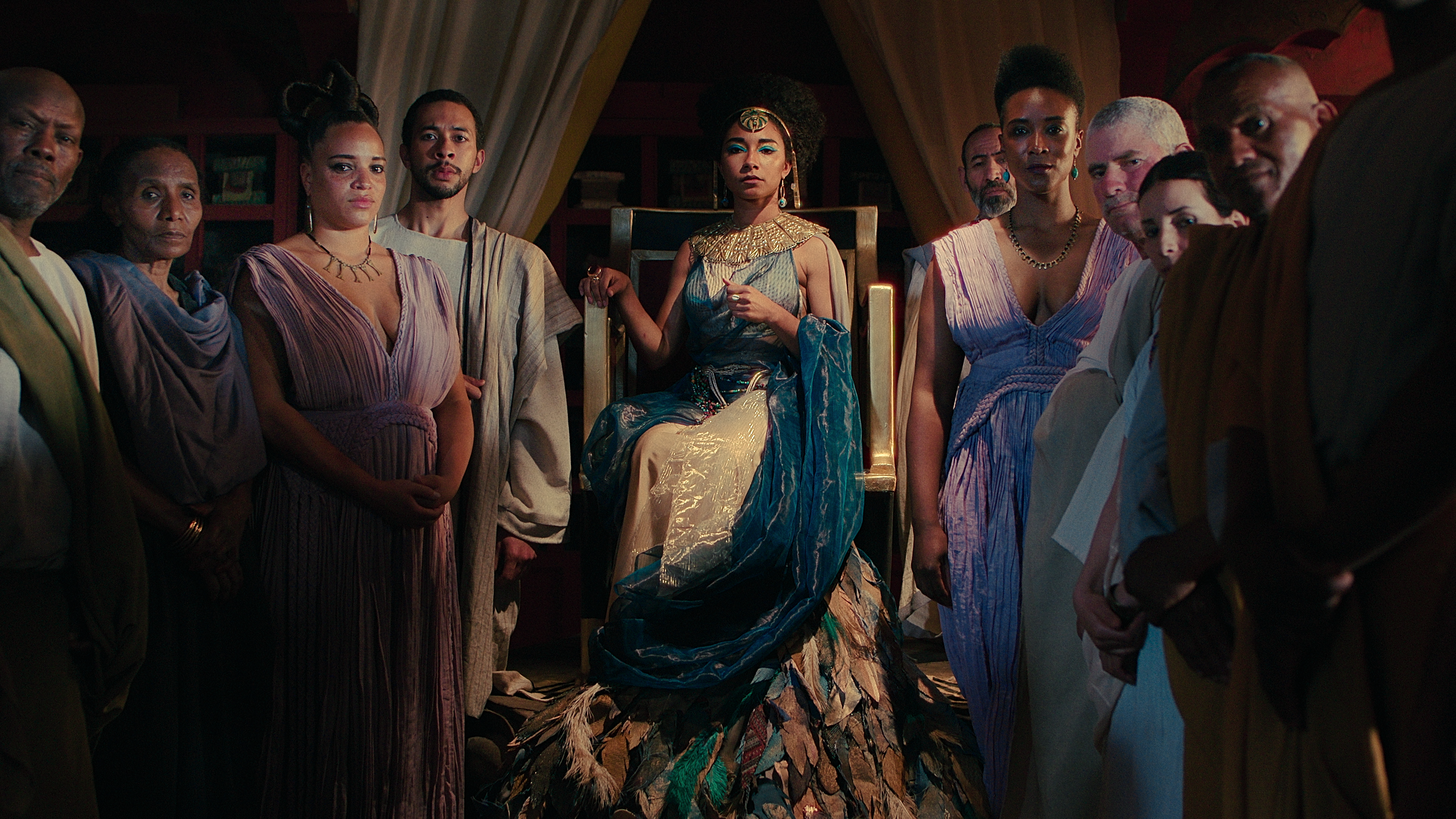
Cleopatra (Adele James) surrounded by her court in Queen Cleopatra (2023), Netflix
Then, in a what can only be described as a stunning display of self-aggrandizement, Gharavi laughed off complaints about the series from actual zEgyptians simply because she could not conceive why they would want to have their history treated respectfully rather than purposefully falsified to fit a particular sociopolitical narrative.
“While shooting, I became the target of a huge online hate campaign,” said the documentarian. “Egyptians accused me of “blackwashing” and “stealing” their history. Some threatened to ruin my career — which I wanted to tell them was laughable. I was ruining it very well for myself, thank you very much! No amount of reasoning or reminders that Arab invasions had not yet happened in Cleopatra’s age seemed to stem the tide of ridiculous comments.”
“Amir in his bedroom in Cairo wrote to me to earnestly appeal that ‘Cleopatra was Greek!'” she egregiously mocked, seemingly baffled at how a non-white individual could object to having a white person purposefully written out of their real world history. “Oh, Lawd! Why would that be a good thing to you, Amir? You’re Egyptian.”

Cleopatra (Adele James) rides across the desert sands in Queen Cleopatra (2023), Netflix
Drawing her thoughts to a close, Gharavi posited, “So, was Cleopatra Black? We don’t know for sure, but we can be certain she wasn’t white like Elizabeth Taylor.”
“We need to have a conversation with ourselves about our colorism, and the internalized white supremacy that Hollywood has indoctrinated us with,” she continued. “Most of all, we need to realize that Cleopatra’s story is less about her than it is about who we are.”
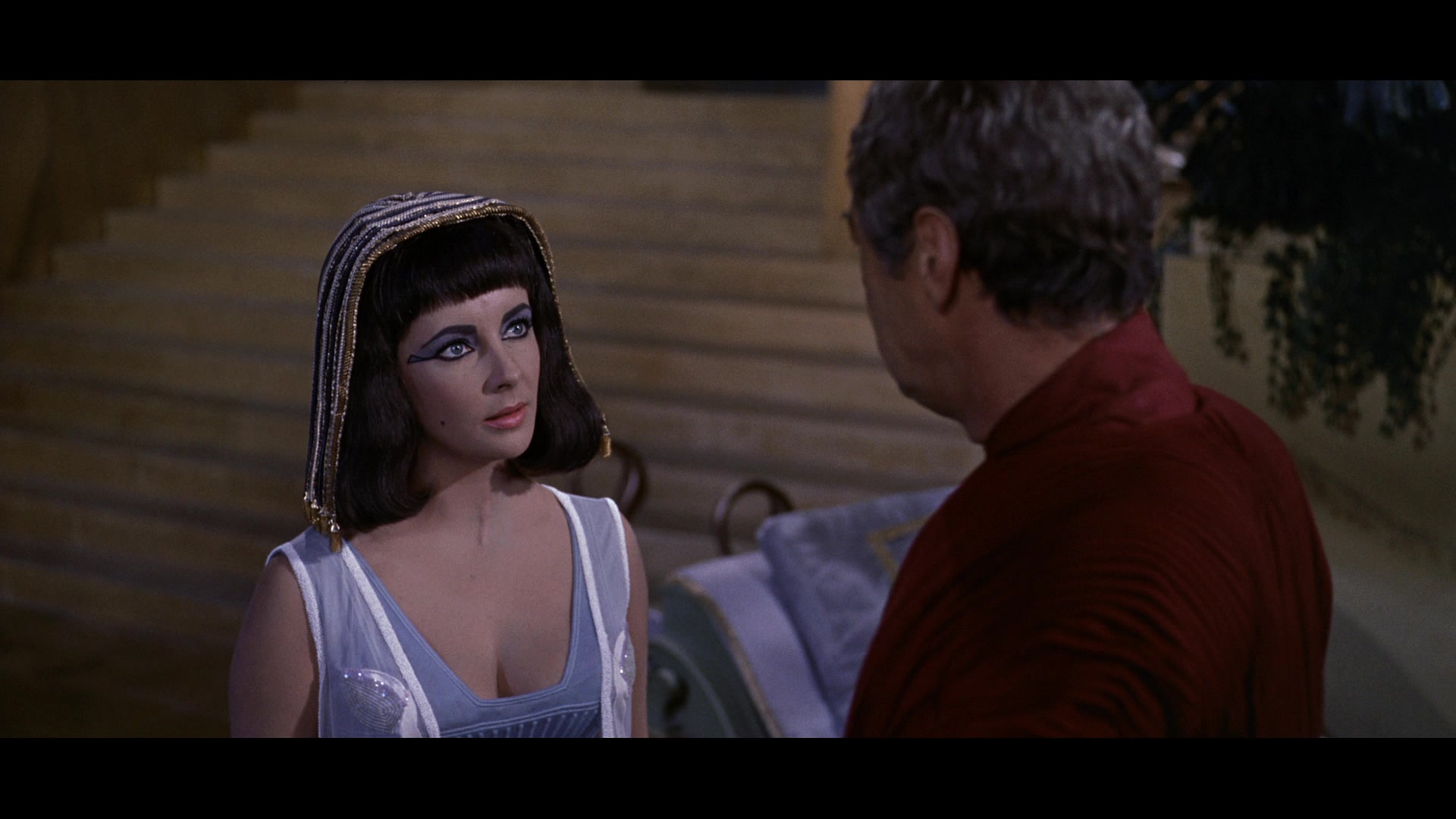
Cleopatra (Elizabeth Taylor) speaks with Julius Caesar (Rex Harrison) in Cleopatra (1963), 20th Century Studios
“It’s almost as if we don’t realize that misogynoir still has an effect on us today,” Gharavi disgienuously asserted. “We need to liberate our imaginations, and boldly create a world in which we can explore our historical figures without fearing the complexity that comes with their depiction.”
“I am proud to stand with Queen Cleopatra — a re-imagined Cleopatra — and with the team that made this,” she concluded. “We re-imagined a world over 2,000 years ago where once there was an exceptional woman who ruled. I would like to draw a direct line from her to the women in Egypt who rose up in the Arab uprisings, and to my Persian sisters who are today rebelling against a brutal regime. Never before has it been more important to have women leaders: white or Black.”
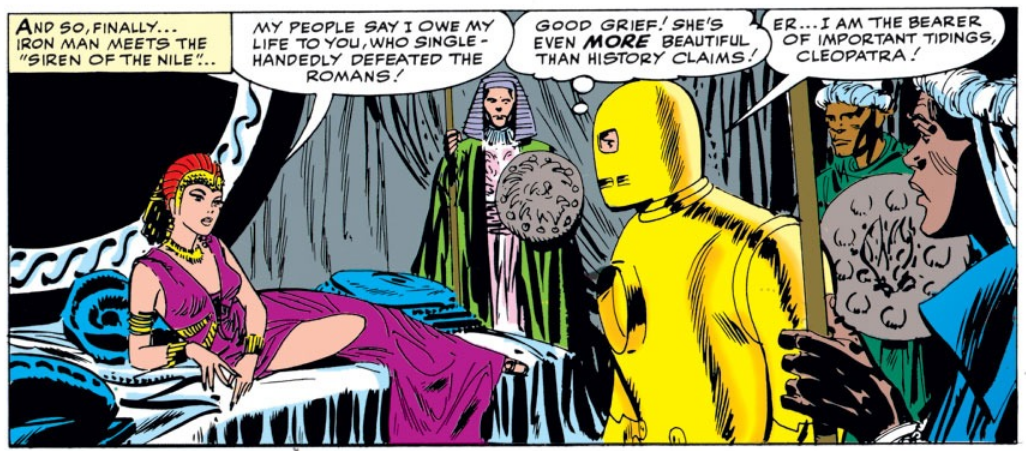
A time-travelling Iron Man meets Cleopatra in Tales of Suspense Vol. 1 #44 “Iron Man Faces the Menace of the Mad Pharaoh” (1963), Marvel Comics. Words by Stan Lee and Robert Bernstein, art by Don Heck and Sam Rosen.
Queen Cleopatra is currently set to try and rewrite history on May 10th.
NEXT: Gal Gadot Faces Waves Of Racist Harassment For Her Casting As Cleopatra In Upcoming Film
More About:Television
